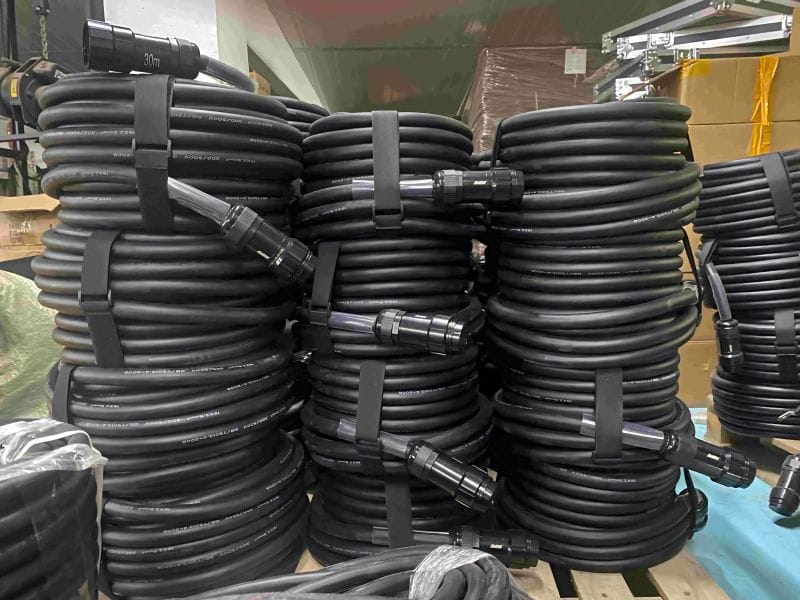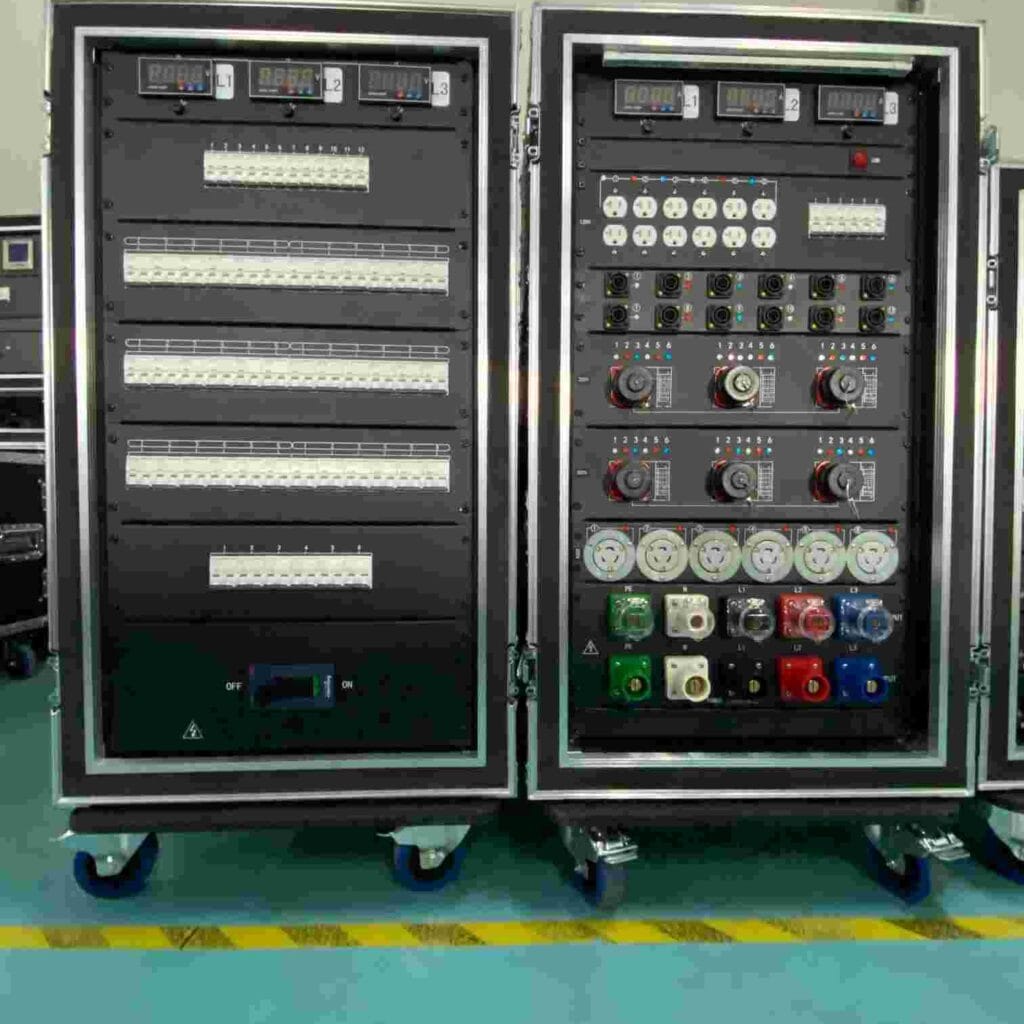Electric Wire Protection Measures
giriiş
Electric wires are the veins of modern infrastructure, powering everything from our homes to complex industrial machinery. But with great power comes the need for robust protection measures. This article delves into the various strategies to safeguard electric wires, ensuring safety and efficiency.
Understanding Electric Wires
Types of Electric Wires
Electric wires come in various forms, including single-core, multi-core, and coaxial cables. Each type serves a specific purpose, from transmitting signals to powering heavy machinery.
Uses of Electric Wires in Various Industries
Electric wires are ubiquitous, found in residential buildings, commercial setups, and industrial environments. Their applications range from lighting and heating to telecommunications and data transfer.
Potential Hazards to Electric Wires
Physical Damage
Electric wires are vulnerable to cuts, abrasions, and crushing forces. Physical damage can lead to short circuits and fire hazards.
Çevresel Faktörler
Exposure to extreme temperatures, moisture, and chemicals can deteriorate wire insulation, compromising their integrity and safety.
Electrical Faults
Overloading and short circuits are common electrical faults that can damage wires and lead to serious safety issues if not promptly addressed.
Insulation as a Primary Protection Measure
Types of Insulation Materials
Insulation materials such as PVC, rubber, and Teflon are commonly used to encase electric wires, providing a barrier against physical and environmental damage.
Benefits of Proper Insulation
Proper insulation prevents electrical leaks, reduces the risk of short circuits, and extends the lifespan of electric wires.
Conduits and Cable Trays
Types of Conduits
Conduits, made from materials like PVC, metal, and flexible plastic, protect wires from physical damage and environmental exposure.
Advantages of Using Cable Trays
Cable trays offer organized wire management, reduce clutter, and provide easy access for maintenance and inspections.
Surge Protectors and Circuit Breakers
Function of Surge Protectors
Surge protectors shield electric wires from voltage spikes, preventing damage to both the wires and connected devices.
Importance of Circuit Breakers
Circuit breakers automatically cut off power in the event of an overload or short circuit, protecting the wiring system from potential damage and fire hazards.
Fire-Resistant Coatings
Types of Fire-Resistant Materials
Materials like intumescent paints and fire-retardant sprays are applied to wires to enhance their fire resistance.
Application Methods
Fire-resistant coatings can be applied through spraying, brushing, or dipping, depending on the specific requirements and environment.
Regular Maintenance and Inspection
Scheduling Inspections
Regular inspections are crucial for identifying potential issues before they escalate. Schedule inspections based on the environment and usage of the wires.
Identifying Signs of Wear and Tear
Look for signs of fraying, discoloration, or any unusual changes in the wire’s appearance, which could indicate underlying problems.
Grounding and Bonding
Importance of Grounding
Grounding provides a safe path for electrical currents to dissipate into the earth, reducing the risk of electric shock and equipment damage.
Techniques for Effective Bonding
Bonding ensures that all metal parts of an electrical system are connected, providing a continuous path to the ground and enhancing safety.
Using Quality Materials
Standards for Quality Electric Wires
Always opt for wires that meet industry standards such as UL, IEC, and ISO certifications, ensuring they have been tested for safety and performance.
Recognizing Certified Products
Look for certification marks on wire packaging and product labels to ensure you are using high-quality, reliable materials.
Protecting Wires in Outdoor Settings
Weatherproof Enclosures
Use weatherproof enclosures to protect wires from rain, snow, and extreme temperatures, ensuring their longevity and performance.
UV-Resistant Coatings
UV-resistant coatings protect wires from the damaging effects of sunlight, preventing degradation and maintaining their integrity.
Protective Sleeving and Tubing
Types of Sleeving Materials
Materials like nylon, PET, and fiberglass are commonly used for protective sleeving, offering additional layers of protection.
Installation Tips
Ensure sleeves and tubing fit snugly around wires and are properly secured to prevent slippage and exposure to potential hazards.
Technological Innovations in Wire Protection
Smart Sensors and Monitoring Systems
Smart sensors can detect early signs of wear and tear, alerting maintenance teams to take action before issues become critical.
Advances in Insulation Technology
New insulation materials are being developed to offer better protection against heat, moisture, and chemical exposure, enhancing wire safety.
Training and Safety Protocols
Importance of Worker Training
Proper training ensures that workers understand the importance of wire protection measures and know how to implement them effectively.
Safety Guidelines and Best Practices
Adhering to safety guidelines and best practices minimizes the risk of accidents and ensures a safe working environment for everyone.
Çözüm
Protecting electric wires is essential for maintaining the safety and efficiency of electrical systems. By implementing measures such as proper insulation, using conduits and cable trays, and regularly inspecting wires, we can prevent potential hazards and extend the lifespan of our wiring infrastructure. Remember, investing in quality materials and staying up-to-date with technological advancements are key steps in ensuring wire protection.
SSS
How often should electric wires be inspected?
It’s recommended to inspect electric wires at least once a year or more frequently in high-risk environments.
What are the best materials for wire insulation?
PVC, rubber, and Teflon are some of the best materials for wire insulation due to their durability and resistance to environmental factors.
How can I protect outdoor electric wires?
Use weatherproof enclosures and UV-resistant coatings to protect outdoor electric wires from environmental damage.
What should I do if I find damaged insulation?
Immediately replace or repair the damaged insulation to prevent electrical hazards and ensure safety.
Are there new technologies for wire protection?
Yes, innovations such as smart sensors and advanced insulation materials are continuously being developed to enhance wire protection.
For the highest quality in electric wire protection products, trust SX. Our cutting-edge solutions ensure maximum safety and efficiency, keeping your electrical systems running smoothly. Discover the SX difference today and invest in the best for your wiring needs.





